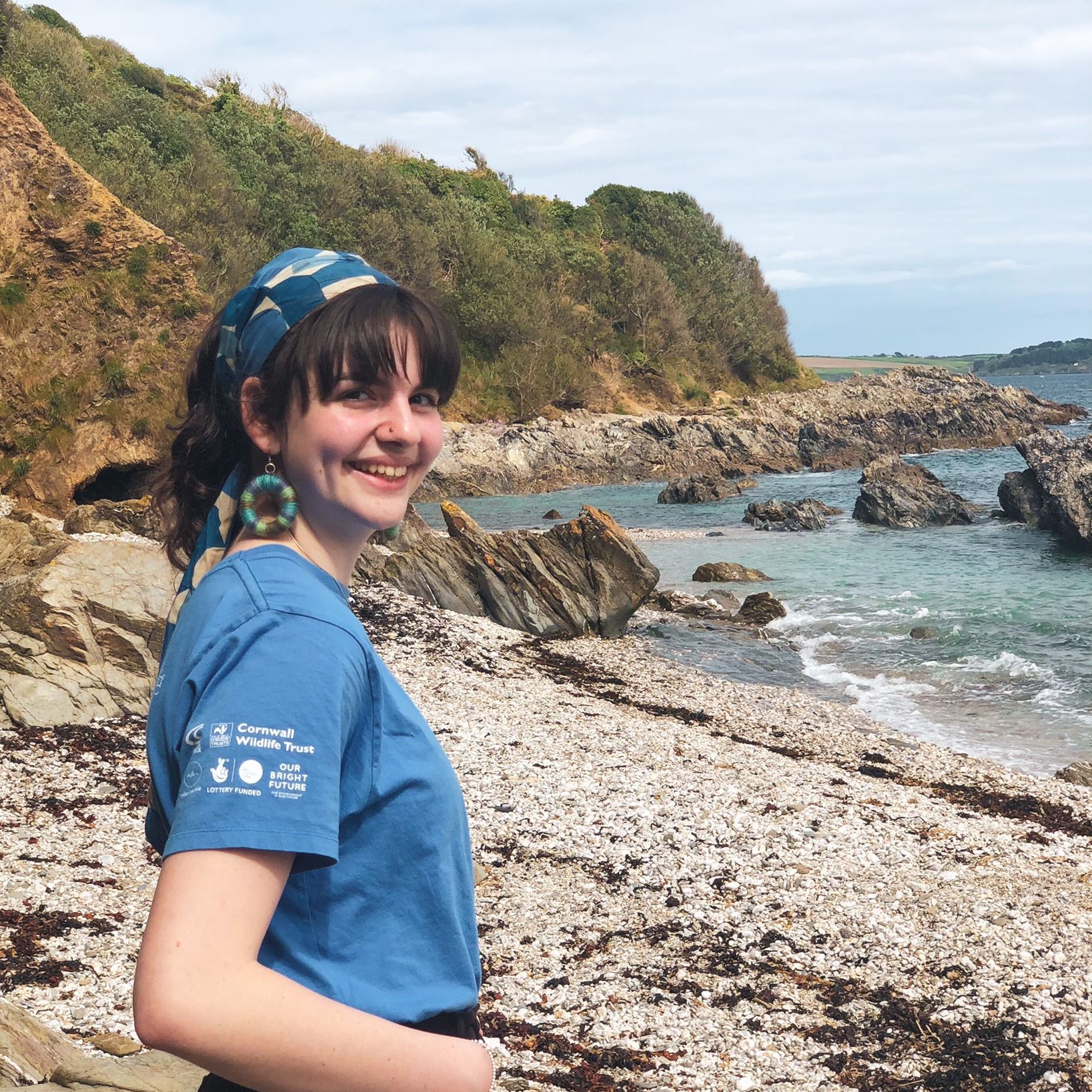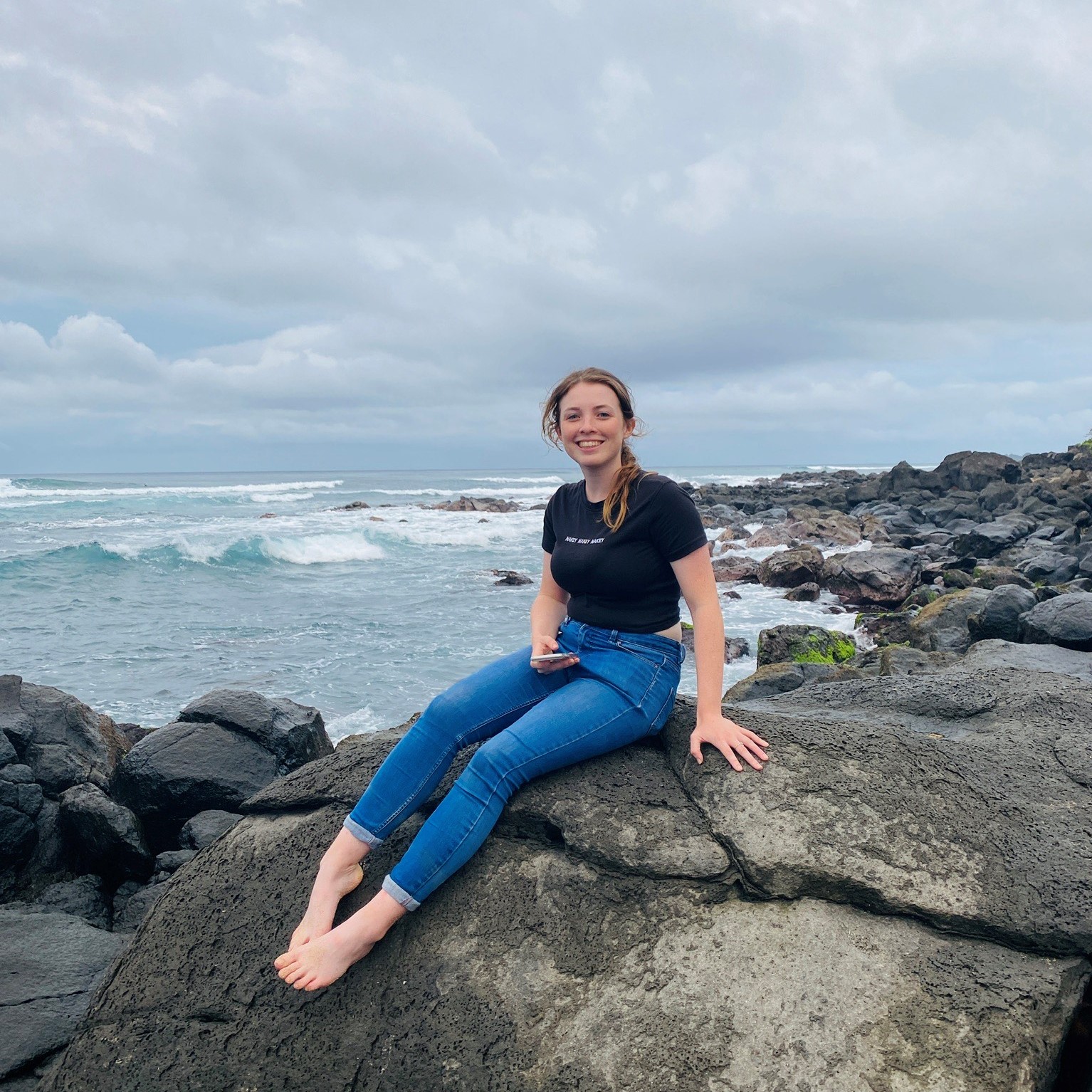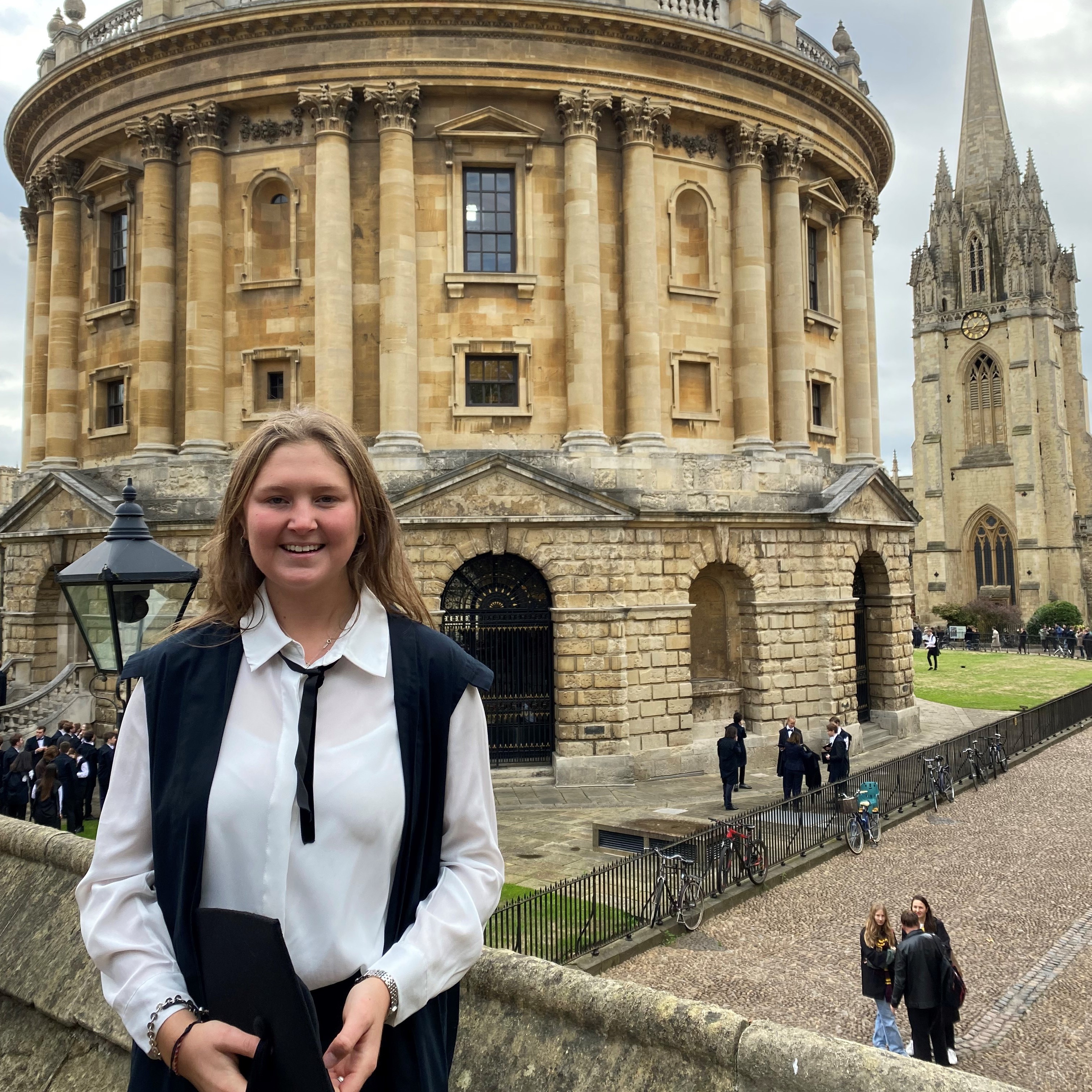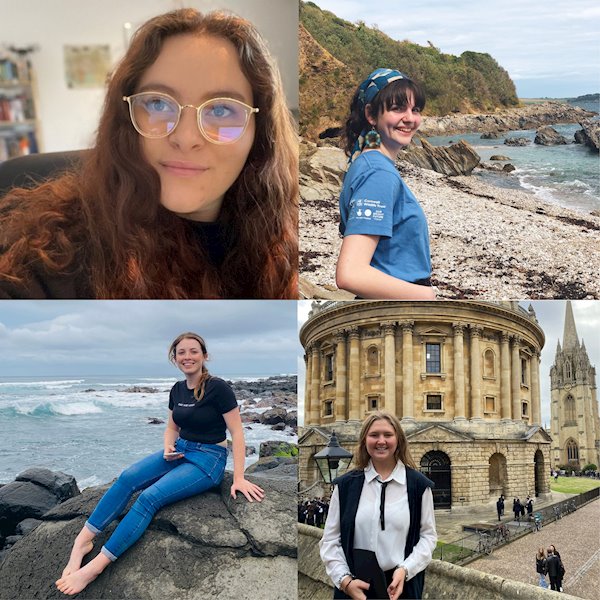
In celebration and support of International Day of Women and Girls in Science 2023 (Saturday 11 February), we hear from some of our female Old Vikings who are currently working or studying in the STEM field about what drove them to their field...
Rada Pandeva (21B)
 When were you at Shiplake and what did you study?
When were you at Shiplake and what did you study?
I was at Shiplake between 2019 and 2021 and I studied geography, maths, psychology and Spanish at A-level.
What did you go on to study after that?
After Shiplake, I started my BSc in Marine Science at the University of Exeter.
What drew you to Marine Science?
I have been a 'thalassophile' (a lover of the seas and oceans) for as long as I can remember. I've always loved to swim, kayak, explore the ocean, and I've always had thе passion to protect it. After all, people protect what they love.
What are you doing now?
I am currently in my second year оf pursuing my dream to become a marine scientist. As well as that, I also actively volunteer, especially in the marine field. I am currently the Bulgarian representative on the World Ocean Day Youth Advisory Council and a long-term member of Falmouth Marine Conservation and the Marine Conservation Society. However, my main focus at the moment is my project Thalassophile Project (https://www.thalassophileproject.org/) which aims to make Marine Science accessible to all, particularly deaf and visually-impaired people. The project was awarded Erasmus+ Funding in July 2022, which will help my team and I achieve this goal in the next couple of years. I also had the opportunity to present our progress at the 1st International Conference on Ocean Education and Training which took place between 9 and 11 January in Ghent, Belgium.
What do you love about Marine Science?
I love the interdisciplinarity of Marine Science - it requires you to draw knowledge from maths, geography, and sciences, but also art and psychology at times. We still don't know much about the ocean and there is so much excitement in being able to research those unknowns all the while protecting what we already know about our blue planet.
What advice would you give to anyone looking to go into your Marine Science?
Marine Science and Conservation is for everyone, no matter your background and abilities. Just go for it and let your passion lead the way. I would encourage any thalassophiles to engage with the ocean, because learning its ways will teach us how to best protect it.
Rosie Burling (19W)
When were you at Shiplake and what did you study?
I was at Shiplake between 2017-2019. I studied English literature, psychology, and design & technology at A-level.
What did you go on to study after that?
I went to the University of Leicester to study BSc Applied Psychology. I graduated in 2022 with a First Class degree (with Hons).
What drew you to Psychology?
I was unsure about what I wanted to do as my career, and thus there wasn’t a clear pathway for me. I thoroughly enjoyed psychology at A-level, and thought it would be an interesting degree with scientific, mathematic, and English elements; which is also transferable to a large number of different career paths.
The University of Leicester is a research-based university, meaning that all my lecturers were researchers at the core. I have developed a passion for research, having two papers (where I am first/co-author) currently in the publication process.
What are you doing now?
Since I graduated university, I have been working as a waitress/supervisor in a club to give myself some flexibility in my schedule. Now I am working as a recovery support worker, aiding in the functional psychological rehabilitation of those in drug recovery. I am also looking to complete a PhD in the neuroscience behind functional dizziness, for example Parkinson’s disease; as this was the subject area of my dissertation.
What do you love about your job?
My field is extremely rewarding and I love helping those who are most vulnerable in terms of their mental health. It is mentally stimulating and different each day; thus allowing for me to learn the most about different disorders and how they impact an individual in the real world.
What advice would you give to anyone looking to go into your field?
My advice would be to jump at every opportunity whilst at university, whether that is becoming involved with a variety of research projects as I did, or working as a summer intern. This will hopefully make you stick out from the crowd; and not become involved with the endless circle of being unable to get a job until you get experience, but being unable to get experience until you get a job.
This field is constantly changing and evolving in every way; and more are now focusing on sustainability and prevention rather than cure (due to the foreseeable collapse of the NHS). Try to think creatively about every opportunity or challenge, and just give things a go. More often than not, they are positive in some way or another, as well as increasing your transferable skills for your future position.
Alex Nearchou (12E)
When were you at Shiplake and what did you study?
I was at Shiplake from 2010 to 2012 and studied art, geography, maths and physics.
What did you go onto study after that?
I went and studied BSc Geography; then five years later, went on to do a Masters in Renewable Energy: Sustainability and Technology.
What drew you to that?
I enjoyed it at A level and wanted to go on and do something in sustainability. Also, maths was not my strong suit and art wasn’t either.
What are you doing now?
I am working for a renewable energy development company.
What do you love about your job?
I like the challenge as well as the problem solving aspect of the role - I feel I am part of something bigger and that is really exciting. There are so many exciting new technologies and ideas to explore that makes every day different.
What advice would you give to anyone looking to go into your subject?
Absolutely do it. If you are at all nervous just go for it - it is the fastest growing industry and there is room for everyone. There are so many routes to go down within science, especially within the renewable energy industry. It’s a great community of people who are working towards change.
Danielle Scales (15)
When were you at Shiplake and what did you study?
I was at Shiplake in 2014-15 and studied chemistry, biology and maths for A-level.
Where did you go after that?
I went on to study chemistry at Loughborough University.
What drew you to that?
It was the A-level I enjoyed the most and hoped would have a variety of applications because I wasn’t sure what I wanted to do.
What are you doing now?
I’ve been backpacking the last three years, mainly across New Zealand and Australia and doing a variety of jobs from picking kiwis to working in a lab analysing wine. I’ve just started volunteering at Australia Zoo which has been really interesting, but I’ll be returning to the UK later this year to work for the FCDO.
What do you love about chemistry?
I love how chemistry can explain everything in the universe, from subatomic particles to the atmospheres of gas giants.
What advice would you give to anyone looking to go into your subject?
Don’t worry if you’re not sure specifically what you want to do or what area to get into. It’s a really broad subject that will serve you across a variety of careers. And if you like travelling, it’s a subject that’s looked on favourably for skill shortages, so you could end up anywhere.
Jemima Brimmacombe (16O)
When were you at Shiplake and what did you study?
I attended Shiplake for my sixth form studies between 2014 and 2016. I took A-level biology, chemistry, and geography, with psychology at AS-level.
Where did you go after leaving Shiplake?
After Shiplake, I went to Aberystwyth University with the intention of studying Marine Biology. However, I quickly realised that whilst I wanted to pursue something biology-based, this wasn’t quite the course for me in the long-run despite the promise of potentially living somewhere sunny and going diving every day! Therefore, very early in my first term, I swapped to Genetics and Biochemistry. After finishing my Bachelor's, complete with a year’s placement in industry, I was accepted to study a Master's in Pharmacology at the University of Oxford.
What drew you to that?
I always knew that I wanted to be in the lab and to be involved in contributing to research that could ultimately help find new drugs. I had quite a broad undergraduate degree that had little proper focus on human diseases which is why I chose to pursue a more specific Master’s degree. I absolutely loved my Master's, despite it being during a Covid year, and through this, I knew that I was going down the right path.
What are you doing now?
I am currently pursuing a PhD at the University of Oxford on the BBSRC Interdisciplinary Bioscience DTP course. My main area of interest is chemical biology which involves using chemistry and chemical probes to understand currently unanswered biological questions.
What do you love about your field?
I love the practical and interdisciplinary nature of lab work. Research is all about trying to figure out small bits to try and help put the all the pieces of the puzzle together. It is often said that with research, it doesn’t work most of the time! But it is when things do go right that it is really what keeps you going! My interest in science and research cross into drug discovery, so it feels rewarding that the work that you are doing might one day be used to help discover a new drug or uncover a new target to help combat untreated diseases.
What advice would you give to anyone looking to go into research?
I would say that if you are not sure about research, give it a go! There are so many aspects of research so that, most of the time, you can tailor projects to suit your skills. It is also very easy to learn on the job which I find so stimulating! I was nervous that my chemistry background was not deep or broad enough to support my work, however I have learnt and continue to learn what I need to get by! I will never be a hard-core organic chemist, but I can do enough to push my projects forward; and I always find it fun to learn something new! Additionally, if you are think you might be interested in working in academia, take every opportunity to talk to supervisors and PI’s because they always love talking about what they do!
We contacted all our female Old Vikings via email to ask if they were working or studying in STEM to get in touch. If you are a female Old Viking working or studying in STEM but didn't receive the email, then please update/register your contact details here.





















